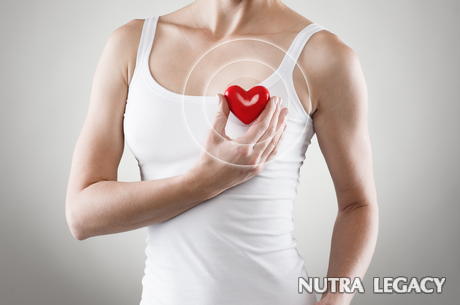Symptoms of Coronary Heart Disease

- Some symptoms of coronary heart disease are: angina and shortness of breath
- Risk factors include: high cholesterol, high blood pressure, inactivity, smoking and heredity
Coronary heart disease is a serious condition that affects many of us, even if we have not been officially diagnosed. You may not have symptoms of coronary heart disease for many years but that does not mean the damage is not being done or that you may not end up having a heart attack down the road. When symptoms do begin to show, you need to seek immediate medical attention and consider taking steps to reverse the condition, if possible.
Symptom #1: Angina
According to both the Mayo Clinic and WebMD.com, angina is the most common symptom of coronary heart disease. Angina is best described as the feeling of someone standing on your chest. Of course other people describe it somewhat differently. The bottom line is that if you experience feelings of heaviness, pressure, burning, squeezing, or pain in your chest, particularly after emotional or physical stress, you may be suffering from angina.
In some cases, the discomfort associated with angina is felt in other parts of the body, including the arms, shoulders, jaw, throat, and back. The American Heart Association suggests that women have a greater tendency to feel this radiating pain, particularly in the back and jaw.
Typically, the discomfort subsides in about 30 minutes or less. In women, the pain may be even more temporary.
Symptom #2: Shortness of Breath
Both the Mayo Clinic and WebMd.com also point to shortness of breath as being another clear indication of coronary heart disease. What happens is that when your arteries become clogged, which is the main cause of this problem, the steady flow of oxygen can end up being blocked. That may not bother you when you’re sitting down, but if you feel short of breath after some minimal type of exertion, it may be a sign of real problems.
Additional Symptoms
With coronary heart disease, some additional symptoms can appear. WebMD.com lists a few other symptoms of coronary heart disease, such as heart palpitations or skipped beats/flip-flopping feeling in your chest. If your heartbeat is irregular or very fast, this could also be a symptom of coronary heart disease.
Sweating, nausea (and sometimes vomiting), weakness, and dizziness are also potential signs of coronary heart disease, especially if they accompany angina and shortness of breath.
The Risk Factors
These symptoms should be of greater concern for people who have other risk factors for coronary heart disease. According to the American Heart Association (AHA), these risk factors include high cholesterol, high blood pressure, inactivity, smoking, obesity, and having type 2 diabetes. If you have a tendency to drink too much and/or have difficulty handling stress, this can also increase your risks.
While the above risks of coronary heart disease are some that you may have the ability to control through lifestyle changes, there are other factors you cannot control. Age is one of those factors. Most deaths associated with coronary heart disease occur in people over the age of 85, according to the AHA. Men tend to suffer from the disease more often than women, making gender a second factor.
One of the biggest indicators of risk, however, is heredity. If you have a family history of coronary heart disease, you could be at significant risk, especially if other risk factors are present as well.
To help with risk factors like high blood pressure and high cholesterol, there are natural supplements like Secretagogue Goldand Cholest Solve 24/7.
The information supplied in this article is not to be considered as medical advice and is for educational purposes only.
|
One Response to “Symptoms of Coronary Heart Disease” | ||||||||||||||





 3 Nov 2008
3 Nov 2008
I'm wondering about the heart palpitations. I experience them sometimes, but none of the other symptoms. I generally lead a healthy lifestyle with regular exercise and no bad habits. I'm a 38 year old male with no family history of heart disease. Am I still likely to get it or should I stop worrying?February 3rd, 2011 at 6:41 am